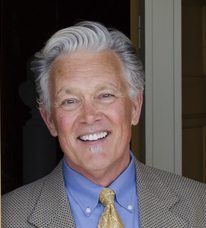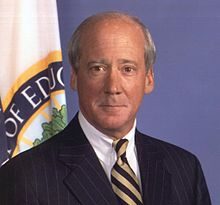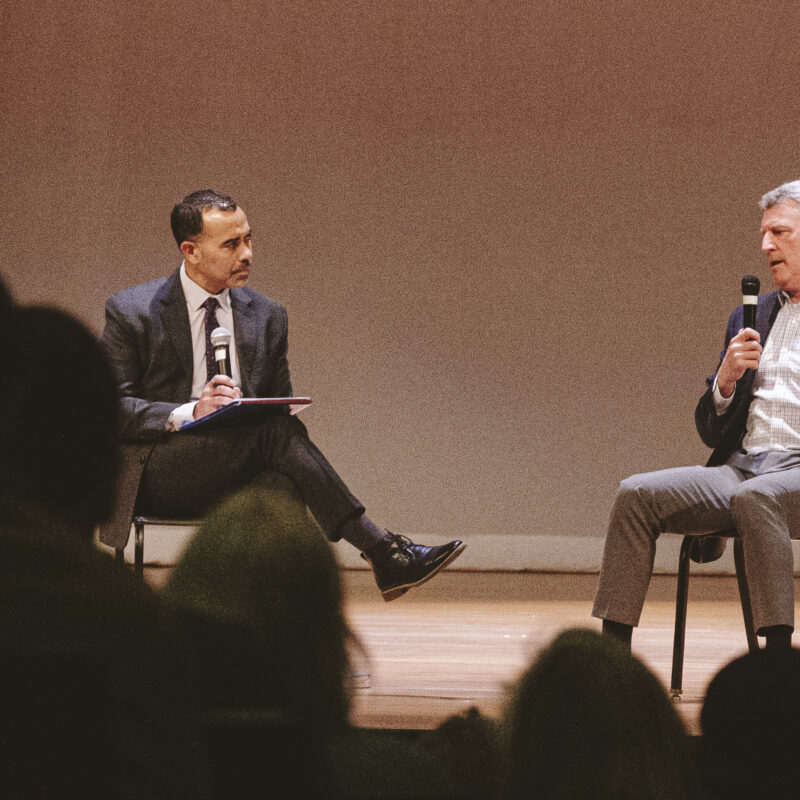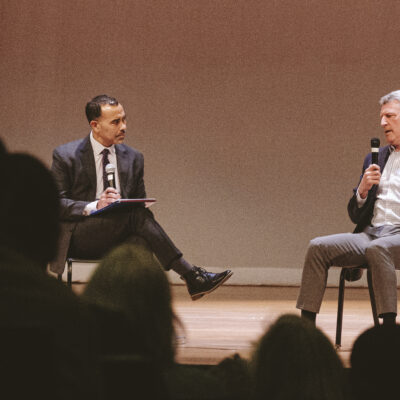(More) mail woes
For years, mail delays have plagued the Charlottesville area, thanks to short staffing and poor management at the Charlottesville Post Office. Last week, Senator Mark Warner visited Charlottesville again to meet with frustrated residents and postal workers, and address the ongoing crisis.
“Our service has gotten better in the last month or maybe even two months, but it still comes infrequently,” said local resident Drew Trotter during the meeting, held at the University of Virginia. “We get 22 pieces one day and nothing for two more days.”
Warner attributed the staffing crisis to low wages, and said he would request pay raises for postal workers in Charlottesville and Albemarle County.
“If the post office doesn’t pay better than fast food, and being a postal carrier is a heck of a lot harder work outside in the weather, I’m not sure how we fill that gap—unless we can make it more competitive,” Warner said.
Warner hoped that the Postal Service Reform Act—which President Joe Biden signed into law earlier this month—would help the agency to boost pay. The bipartisan legislation repealed a 2006 mandate requiring the Postal Service to cover retiree health care costs in advance, saving the agency around $50 billion over the next decade. Warner met with Charlottesville Post Office management twice last year to try to resolve the mail delays. In November, he said the office had hired nearly two dozen new employees. Last week, Warner did not know how many new employees the office had hired since the fall, but said it is currently short 10 to 15 city and county mail carriers. To stay afloat, the office has postal workers from other offices across the state coming in every week.
However, Charlottesville is “very close” to getting a new postmaster, said Warner. The city has not had a full-time postmaster since 2018.
Lloyd Cox, president of the Virginia chapter of the National Association of Postal Supervisors, echoed Warner’s concerns about carrier pay, and voiced his grievances with U.S. Postmaster General Louis DeJoy.
“The wrong equipment was dismantled and taken out. The morale could be a lot better,” explained Cox. “[Carriers] are struggling to try to serve you with the parameters and changes that have been put in place.”
Warner urged area residents to be patient, but to expect mail delivery improvements by July.
Montpelier conflict escalates
The Montpelier Foundation Board’s late-March decision to reverse a power-sharing agreement with the Montpelier Descendants Committee prompted waves of public criticism from historic preservation groups and Montpelier staff. Now multiple high-level Montpelier employees have been fired, and the MDC is calling for the resignation of Montpelier CEO Roy Young and Montpelier Foundation Board Chair Gene Hickok.
“When Young fires everyone who thinks he is a failed leader, he’ll find Montpelier uninhabited,” said MDC attorney Greg Werkheiser in an April 18 press release announcing the firings.
Among the Montpelier staff terminated by Young are Elizabeth Chew, Montpelier’s executive vice president and chief curator; Matthew Reeves, director of archaeology and landscaping restoration; and Christy Moriarty, director of communications. Young has fired or suspended multiple other Montpelier employees in the past week.
“I have devoted my archaeological career to understanding the lives of the enslaved men, women, and children who lived at Montpelier in partnership with the Montpelier Descendants Committee,” Reeves says in a statement included in the MDC press release. “To be retaliated against by the Montpelier leadership for doing my job is a bitter irony.”
Nearly 7,000 donors and members of the public have signed a petition supporting MDC and Montpelier staff, according to the release, and the National Trust for Historic Preservation, which owns Montpelier, issued a statement condemning Young’s actions.
Neither Young nor Hickok responded to C-VILLE’s request for comment by press time.
The 10th Tom Tom Festival celebrates community
Two years ago, Tom Tom Festival Founder Paul Beyer was gearing up for a huge event. Hillary Clinton was set as a festival headliner, and Beyer had secured the necessary city permissions to hold the first-ever block party on the Downtown Mall with live music stages and open-air containers allowed to create a New Orleans-style vibe. On March 11, 2020, Beyer sent out a press release announcing the doomed event.
“Literally the next day was ‘never mind,’ you know, and it was the shutdown,” Beyer recalls.
Two years later, the global pandemic has ebbed and Tom Tom is celebrating its 10th anniversary from April 20-24. The big block party planned for 2020 is finally happening, but for this year’s event, there aren’t international celebrity headliners. The theme is Tomorrow’s Charlottesville, and Beyer says the focus is all local.

“As we turn to the 10th year, I just have really been thinking about what is the most important thing Tom Tom could do with this milestone,” he says. “And it’s to uplift our community.”
Prompted by the festival’s April 20 kick-off date and the recent legalization of marijuana in Virginia, Beyer wanted to host a conversation on criminal justice reform. To plan that event, he tapped Martize Tolbert, client and community engagement director at the Fountain Fund, a nonprofit that provides low-interest loans to returning citizens.
“I know guys that are locked up still off things that are legal now,” Tolbert says of the changing marijuana laws. He hopes the criminal justice reform event will spark ideas and collaborations that might not otherwise happen.
“It’s just about getting these high-stakeholder individuals in a room and having a conversation about legislation and policy change,” says Tolbert, who was a Fountain Fund client before accepting the full-time position.
Participants in that event, taking place Wednesday afternoon at Common House, include Delegate Sally Hudson and Albemarle Commonwealth’s Attorney Jim Hingeley, in addition to community activists and others who work in the criminal justice space. (This reporter will also be part of that event.)
“People showing up and talking, that’s the win for me,” Tolbert says.
Other Tom Tom events include a community building event on Thursday, the return of the popular crowd-funded pitch night, in which participants present business ideas and receive audience feedback and possible financial support, and a Thursday night silent disco. Friday and Saturday bring the two-day block party and evening dance parties at downtown locations. Tom Tom concludes on Sunday with the Porchella Belmont concerts, an afternoon event featuring acoustic musical performances on front porches throughout the downtown neighborhood.
Beyer says he’s looking forward to the multicultural aspects of this year’s festival.
“I’ve really just tried to like, look at my friends, look at organizations, look at the people in the community that are doing interesting things and say, ‘Look, this is your stage. Like, help us. You put on the show,” he says. “That’s been my intention as I’ve tried to plan. It is really trying to create a platform where a lot of people feel welcomed to tell their story.”—Courteney Stuart
In brief
Off the ballot
Josh Throneburg, an ordained minister and small business owner, has claimed the 5th Congressional District’s Democratic nomination, after opponents Andy Parker and Warren McClellan failed to submit enough signatures to get on the ballot for the Democratic primary. Current Representative Republican Bob Good will face off against Charlottesville attorney Dan Moy during a Republican congressional convention in May.
(Don’t) melt ’em
A Charlottesville judge is weighing whether a lawsuit seeking the return of the Robert E. Lee statue to the city for a rebidding process can proceed. In December, Charlottesville City Council unanimously voted to donate the infamous statue to the Jefferson School African American Heritage Center, which wants to melt it down and use the bronze to create a new public artwork. The plaintiffs in the case, the Trevilian Station Battlefield Foundation and the Ratcliffe Foundation, claim the city violated multiple laws in awarding the statue to the Jefferson School. At a hearing in Charlottesville Circuit Court last week, the defendants’ attorneys argued that the city did not break any laws and that the suit should be dismissed. Judge Paul M. Peatross said he would rule on whether the case can proceed “very soon.”
Grab a seat
For the first time in over two years, Charlottesville’s city councilors returned to the dais on Monday. Up to 23 members of the public are now allowed to attend council meetings in-person at City Hall, but must reserve a seat in advance. Meetings will continue to be streamed online for those—like us!—who would rather tune in from home.
Tax hike
During a special meeting last week, Charlottesville City Council unanimously passed a $214 million budget for the next fiscal year—including a 1 cent real estate tax hike to help pay for long-awaited renovations to Buford Middle School. Homeowners will now pay 96 cents per $100 of the assessed value of their property. On Monday, councilors voted to increase the city’s meals tax from 6 to 6.5 percent, which will also help fund the costly school reconfiguration project.








